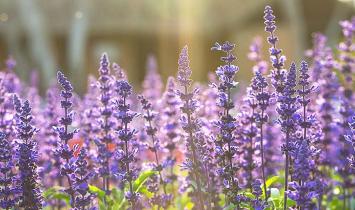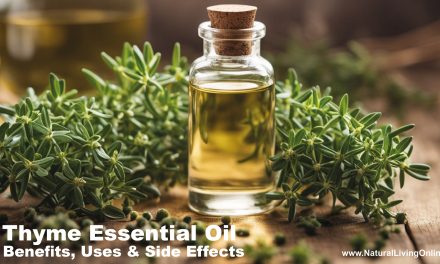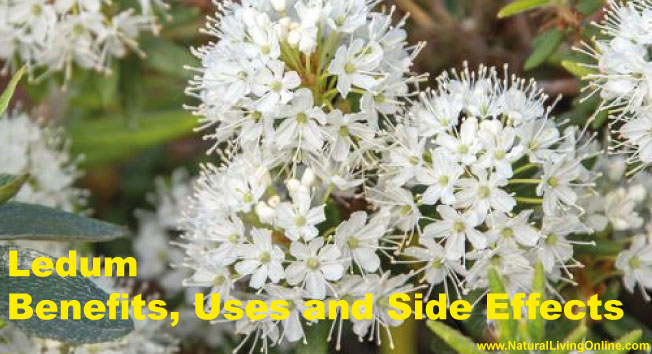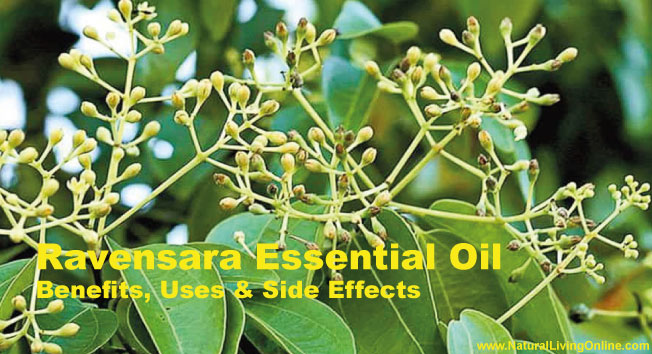Clary sage is a powerful essential oil that has many benefits for the body, mind and spirit. It is extracted from the clary sage plant using steam distillation, and has a sweet, nutty smell. Clary sage oil is often used in aromatherapy to treat a variety of conditions, including anxiety, depression, PMS symptoms and menopause symptoms.
Essential Oil Profile / Monograph
Botanical Name: Salvia sclarea
Common Names: Clary, muscatel sage, clear eyes
Plant Family: Lamiaceae
Countries of origin: France, Bulgaria, Russia
Extraction Method: Steam distillation
Parts Used: Flowering tops and leaves
Essential Oil smell: Nutty, sweet
Essential Oil Color: Clear to pale yellow
Viscosity: Thin
Perfumery Note: Middle
Strength of Aroma: Medium
Blends Well With: Orange, bergamot, geranium, lavender, rosemary, cedarwood
Therapeutic Properties: Anti-inflammatory, antispasmodic, astringent, carminative, deodorant, digestive, diuretic, emmenagogue, expectorant, hypotensive, nervine, sedative
Uses: Anxiety, depression, PMS symptoms, menopause symptoms
Contraindications: There is a possibility that clary sage oil may interact with certain medications, such as: sedatives, anticonvulsants, blood pressure medications, and diabetes medication. If you are taking any of these medications, please consult with your doctor before using clary sage oil.
Side Effects: If used internally, clary sage essential oil can cause nausea, vomiting and diarrhea. Do not use it internally without the supervision of a doctor. It is also not recomended for pregnant or breastfeeding. Clary sage oil can also cause skin irritation if applied topically in large doses. It is important to test a small amount of the oil on a patch of skin before using it for the first time. If you experience any adverse reaction, discontinue use and consult a doctor.
Chemical Constituents: Linalyl acetate (50-70%), sclareol (12-24%), geranial (0.01-0.05%)
What is Clary Sage?
Clary sage (Salvia sclarea) is an herbaceous perennial plant that belongs to the mint family. The clary sage plant can grow up to six feet tall, and has large, showy flowers that range in color from white to pink or purple. The essential oil is extracted from the leaves and flowers of the clary sage plant using steam distillation.
There are three main types of Clary Sage essential oil:
Bulgarian Clary Sage Oil. This is a premium quality essential oil that comes from Bulgaria in Eastern Europe. It has a deep, rich aroma and it’s highly therapeutic.
Moroccan Clary Sage Oil. This is an organic essential oil that comes from Morocco in North Africa. It is also known as “Clary Sage Absolute” and it has a very floral aroma with hints of rose, jasmine and clover blossoms mixed together to create this beautiful scent!
American Clary Sage Oil. This is the most common type of Clary Sage essential oils and it’s produced in the United States. It has a light, sweet aroma that is reminiscent of lavender oil.
There are also many different variations of these three types of oils, each with their own unique scent and therapeutic properties. So how do you know which one to choose? Here are a few tips:
If you are looking for an essential oil that has antidepressant and sedative properties, then you should choose Bulgarian or Moroccan Clary Sage Oil.
If you are looking for an essential oil that has anti-inflammatory properties, then you should choose American or Moroccan Clary Sage Oil.
If you are looking for an essential oil that has antiseptic and antiviral properties, then you should choose Bulgarian or Moroccan Clary Sage Oil.
If you are looking for an essential oil that is calming, soothing and relaxing to the nervous system, then you should choose American or Moroccan Clary Sage Oil.
In addition to these three types of clary sage oils there is also a variation called English Clary Sage Oil which has a light, sweet aroma.
Benefits
Clary sage oil is most commonly used to treat anxiety, depression and PMS symptoms. It is also effective in treating menopause symptoms, such as hot flashes and night sweats. Clary sage oil can be used in a diffuser or added to a bath to help promote relaxation. It can also be applied topically to the skin, but should be diluted with a carrier oil first. Clary sage is one of the most popular oils used in aromatherapy because it has so many health benefits for the body, mind and spirit. Here are some of its uses:
Clary sage oil is a natural antiseptic that can be used to treat cuts, wounds and insect bites. It also has antibacterial properties which make it useful for treating skin infections such as boils or abscesses.
It can relieve muscle pain caused by overuse or injury (such as sprains). It is also effective at reducing inflammation in joints affected by arthritis and other conditions that cause joint pain like gout or bursitis. The anti-inflammatory properties of clary sage essential oil make it an ideal treatment for these types of conditions because they reduce swelling while simultaneously relieving discomfort associated with them.
Uses
There are many ways to use clary sage essential oil, depending on your needs. Here are some of the most popular methods:
Aromatherapy
Clary sage is a popular essential oil for aromatherapy because it has so many therapeutic benefits. It can be used to treat a variety of conditions such as anxiety, depression, PMS symptoms and menopause symptoms.
Inhalation
This is another popular method of using clary sage essential oil. Inhaling the scent of this herbaceous plant can help to relieve stress, tension headaches and fatigue.
Massage therapy
It is often used in massage therapy to reduce muscle pain and inflammation in joints caused by arthritis or other conditions.
Topical use
Clary sage essential oil can be applied topically to the skin to treat wounds, cuts, insect bites and skin infections. It is also effective at reducing inflammation in joints affected by arthritis or other conditions that cause joint pain.
Clary Sage essential oil benefits for skin
Clary Sage essential oil is known for its ability to soothe and balance the skin. It can be used to cleanse and tone the skin, while also reducing inflammation and redness. It is also said to help reduce the appearance of wrinkles and fine lines.
When used topically, it should be diluted with a carrier oil such as jojoba or coconut oil. It can be applied directly to the skin or added to lotions, creams, and other skincare products.
Clary Sage essential oil benefits for hair
Clary Sage is also beneficial for the hair. It can help to stimulate hair growth, while also reducing dandruff and scalp inflammation. When used on the hair, Clary Sage essential oil can leave it looking and feeling softer, shinier, and healthier.
To use this oil for the hair, add a few drops to your shampoo or conditioner, or massage it (the diluted form) directly into the scalp.
Historical use of Clary Sage as a herbal medicine
Clary sage has been used medicinally for centuries. The Ancient Greeks and Romans used it to treat a variety of conditions, including digestive problems, skin infections and menstrual cramps. In the Middle Ages, clary sage was used as an eye medicine and it was also thought to be effective in treating epilepsy.
Use of clary sage as an herb
The leaves and flowers of the clary sage plant can be used to make herbal tea. This tea is said to have a calming effect on the nerves and can be helpful in treating anxiety, stress, and insomnia. It can also be used as a digestive aid. To make clary sage tea, add one teaspoon of dried herb to one cup of boiling water. Steep for five minutes, then strain and drink.
Aromatherapy
Clary Sage essential oil can be used for aromatherapy to help relieve stress, tension headaches, and fatigue. It can also be used to improve mood and create a sense of calmness and relaxation. To use Clary Sage for aromatherapy, add a few drops to an essential oil diffuser or diffuser necklace. You can also add it to a bowl of steaming water and inhale the vapors.
Diffuser blends for aromatherapy with Clary Sage
-Lavender and Clary Sage: This blend is perfect for relaxation and stress relief.
-Peppermint and Clary Sage: This blend is invigorating and refreshing. It can also help to improve focus and concentration.
-Grapefruit and Clary Sage: This blend is uplifting and energizing. It can also help to reduce anxiety and stress.
-Lemon and Clary Sage: This blend is cleansing and purifying. It can also help to boost the immune system.
– Bergamot and Clary Sage: This blend is balancing and grounding. It can also help to reduce stress and anxiety.
– Jasmine and Clary Sage: This blend is romantic and sensual. It can also help to promote feelings of happiness and joy.
– Chamomile and Clary Sage: This blend is calming and soothing. It can also help to reduce anxiety and promote restful sleep.
DIY recipes with Clary Sage
Facial Toner:
Add a few drops of clary sage to witch hazel or rosewater. Use a cotton ball to apply the mixture to your face after cleansing.
Soothing Bath Soak:
Mix together epsom salt, baking soda, and dried lavender. Add a few drops of clary sage and mix well. Add the mixture to your bathtub filled with warm water and enjoy!
Massage Oil:
Mix together a carrier oil like jojoba or sweet almond oil with a few drops of clary sage. Use as a massage oil for a relaxing experience.
Hair Treatment:
Add a few drops of clary sage to your favorite shampoo or conditioner. Massage into your scalp and hair, then rinse as usual.
Frequently Asked Questions
Who should not use Clary Sage oil?
Pregnant women and those who are breast-feeding should not use clary sage oil. It is also not recommended for people with seizure disorders.
Does Clary Sage oil interact with any medicine?
There is a possibility that clary sage oil may interact with certain medications, such as: sedatives, anticonvulsants, blood pressure medications, and diabetes medication. If you are taking any of these medications, please consult with your doctor before using clary sage oil.
Can you use Clary Sage oil everyday?
Yes, it is safe to use clary sage oil every day. However, if you are new to using essential oils, start with a small amount and gradually increase as you become more comfortable with the oil.
Is it OK to breathe in Clary Sage oil?
Yes, it is perfectly safe to inhale clary sage oil. In fact, many people find the scent of clary sage oil to be very relaxing and calming.
How much Clary Sage oil daily is safe?
There is no definitive answer, as it depends on the individual. Start with a small amount and increase as needed. If you experience any adverse effects, reduce the amount you are using.
Does Clary Sage oil raise blood pressure?
Clary sage oil has been shown to lower blood pressure in some people. However, if you have high blood pressure, please consult with your doctor before using this oil.
Does Clary Sage oil repel insects?
Yes, clary sage oil can help to repel insects. You can add a few drops of the oil to a diffuser or spray bottle filled with water and use it as a natural insect repellent.
Can I directly use Clary Sage oil on skin?
No, you should not apply clary sage oil directly to your skin. Always dilute the oil with a carrier oil before using it topically.
Is Clary Sage oil good for hair?
Yes, clary sage oil is good for hair. It can help to stimulate hair growth and also improve the overall health of your scalp.
Is Clary Sage Essential Oil safe for kids?
It is generally considered safe for kids when used properly. However, it should always be diluted with a carrier oil before being applied to the skin. It is also important to avoid using it on children under the age of two.
Can Clary Sage Essential Oil be used on pets?
It is best to avoid using essential oils on pets.
References:
Antimicrobial activity and mechanisms of Salvia sclarea essential oil
Anti-inflammatory effect of the Salvia sclarea
This website does not provide medical advice.
All information provided on this website, and on associated social media networks, including but not limited to texts, images, and numbers are for general information purpose only. It is not intended as medical advice and it does not include all possible precautions, side effects, or interactions that may occur. Neither NaturalLivingOnline.com nor its author/founder take responsibility for how you use this information. Statements contained on NaturalLivingOnline.com have not been evaluated by the FDA. You should conduct thorough research via multiple sources and consult your physician or qualified doctor before using any essential oil or herbal remedy. Information on NaturalLivingOnline.com must not be relied upon for medical, legal, financial or other decisions.













